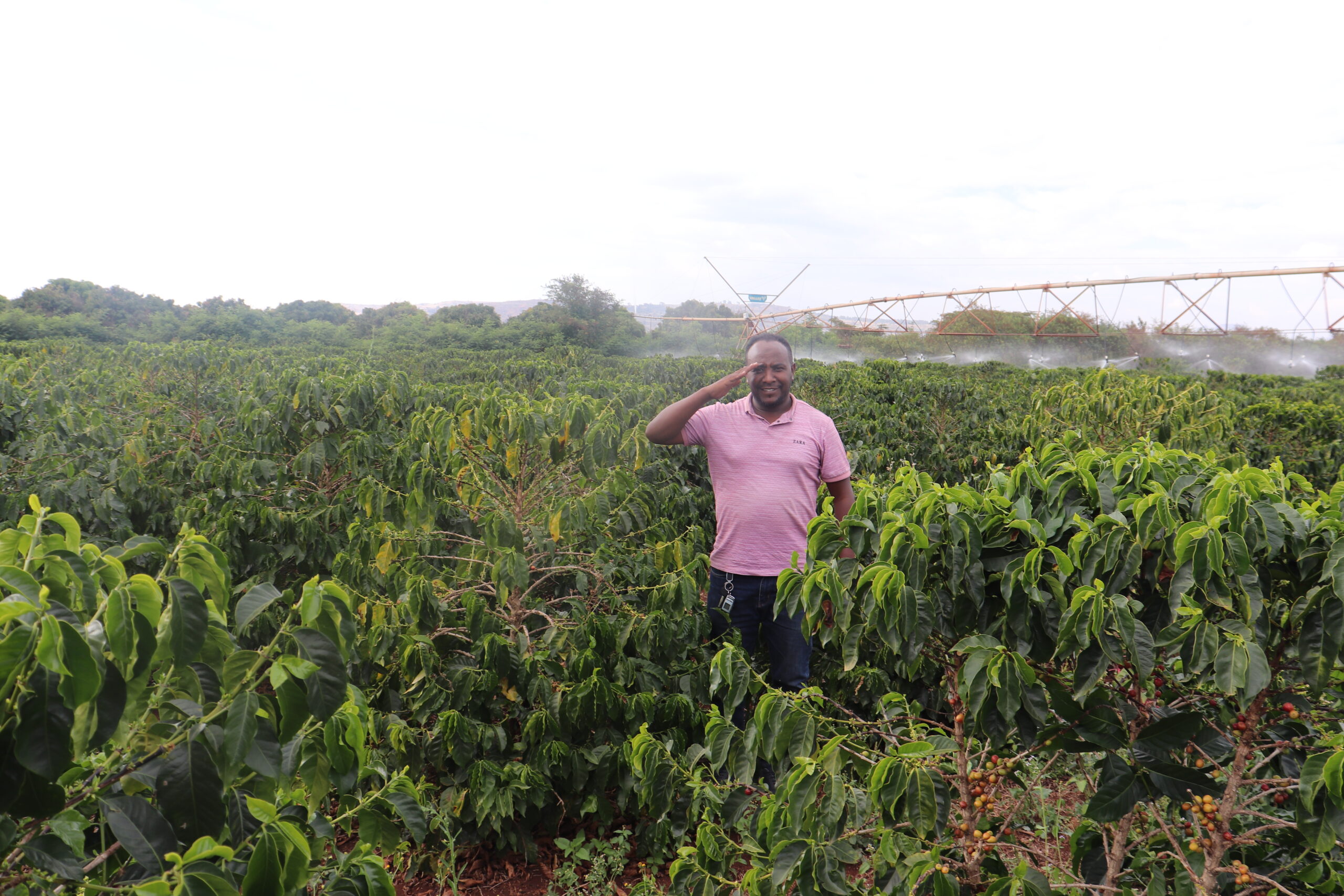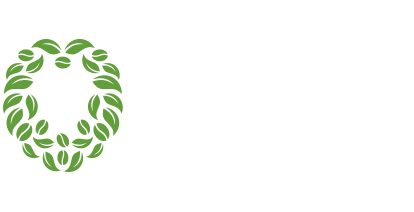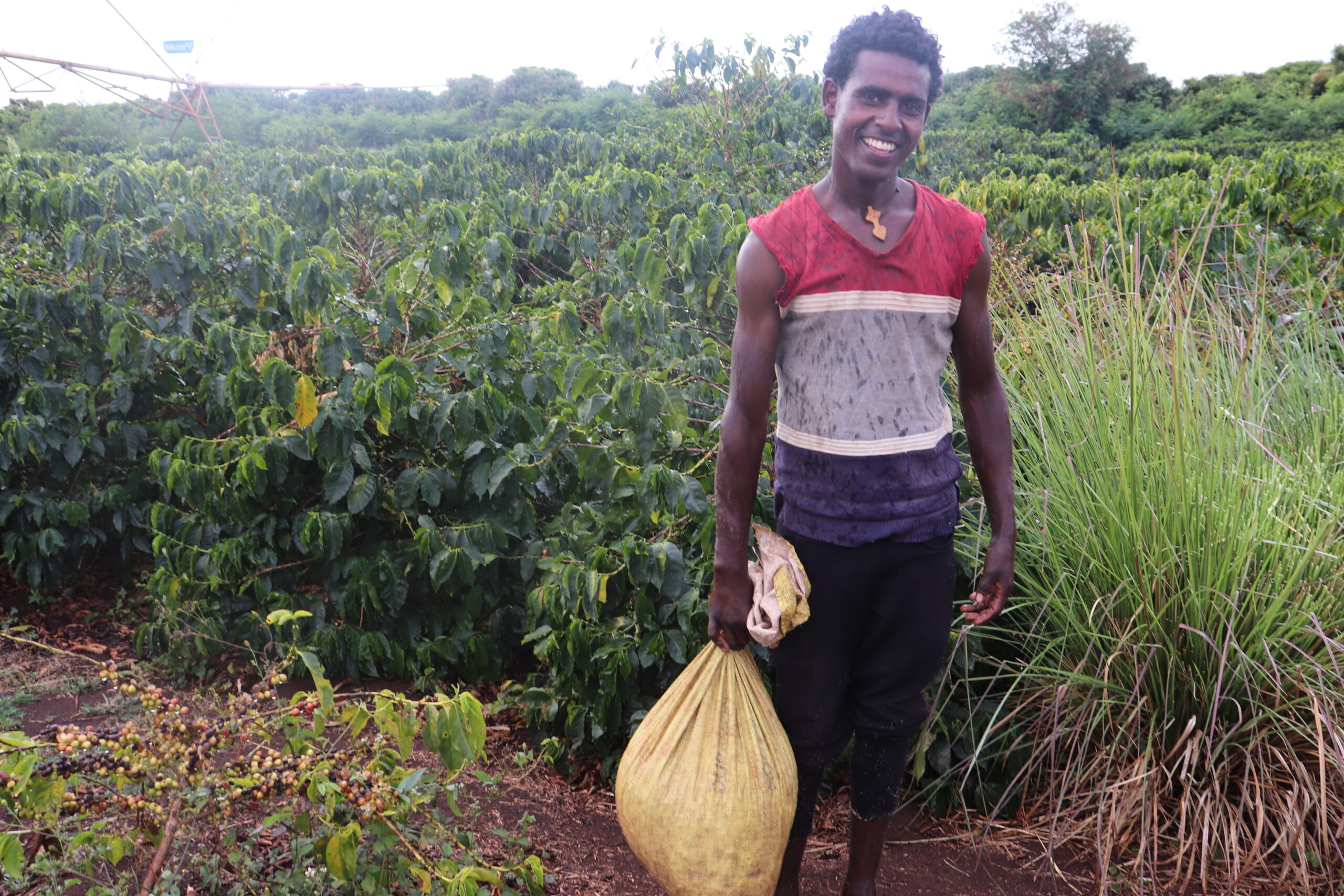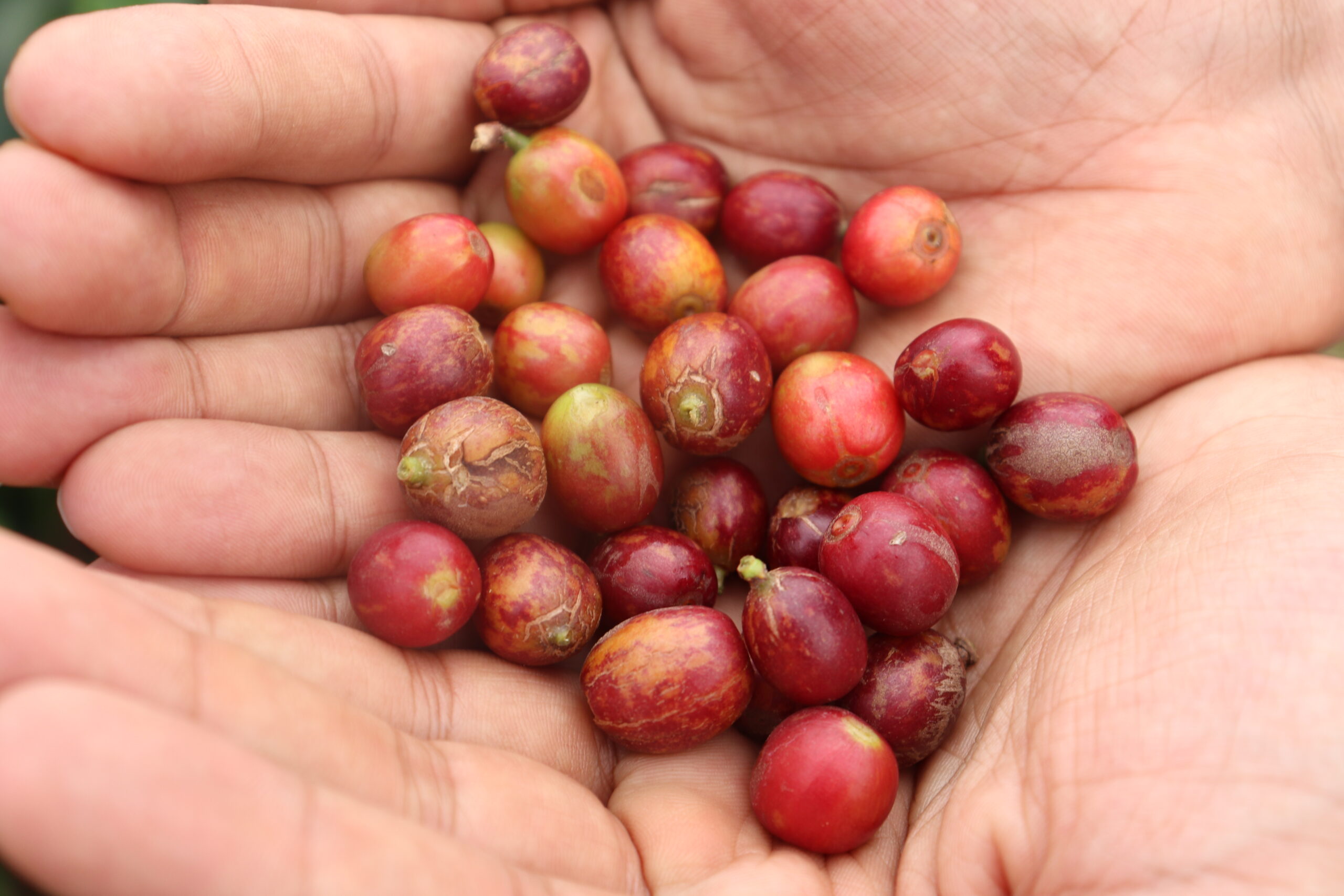
Details
Region: Amhara
Zone: Awi
Woreda: Ayehu Guagus
Altitude: 1,600 – 1,800 meters above sea level
Owner: Ethio Agri Ceft
Process: Washed
Varietal: K7
Screen Size: 14+
Bag Weight: 60kg
Grain Pro: Of course!
Cupping Notes
Aroma: Citrus, fresh cherry and mollasses
Flavor: Rosemary, thyme, sweet citrus & lemon grass with hints of mollasses
Body: Juicy body
Acidity: Bright and citrusy
Certifications: Rain Forest Alliance (RFA)
The People.
The Ayehu Coffee Farm employs +/- 250 locals which all come from the Ayehu Guagusa Woreda (the neighborhood where the farm is located). The farm is one of the largest contributors to the local economy and is well known amongst the community.
Like all of Ethio Agri Ceft’s farms, the workers are paid market wages, provided with free accommodations, meals, and access to an on-site medical facility during the harvest season. The ACF’s on-site residences for workers was built of exceptional quality (relatively speaking) and was quite spacious as it occupies approximately 13.42 hectares of the total farm.
The farm also places a high emphasis on corporate social responsibility through undertaking various initiatives including:
- Distributing coffee seedlings to local farmers
- Donation of educational material & stationary (textbooks, pencils, papers, etc.)
- Formation of a COVID-19 assessment & protection team for the woreda
- Monetary contributions to local economy to help bolster the infrastructure, security and for the creation of shelters for homeless & refugees
The Process.
Along with the rotating irrigator, the Ayehu Coffee Farm utilizes machinery to pulp, dry and hull their coffee. The pulping station sits on approximately 4 hectares of land and is comprised of several washing tanks, a pulping machine (demucilager), an artificial dryer and a huller.
Once the coffee cherries begin to turn dark red, they are carefully hand picked and taken to the pulping station. For washed processed Ayehu, the cherries are loaded into the demucilager which pulps the beans to remove the skin before being washed in the fermentation tanks for 1.5 days. After which they are either laid out on traditional drying beds for 10-15 days, or placed into their new artificial air dryer which can get the job done in as little as 24 hours. These guys are serious about their machines!
Cherries processed naturally (sundried) are handpicked and immediately laid out to dry on the drying beds before being pulped to remove the mucilage.
Once these coffees have been pulped & dried they are ready to be bagged and transported to Addis Ababa where they will be hulled to remove the parchment!



